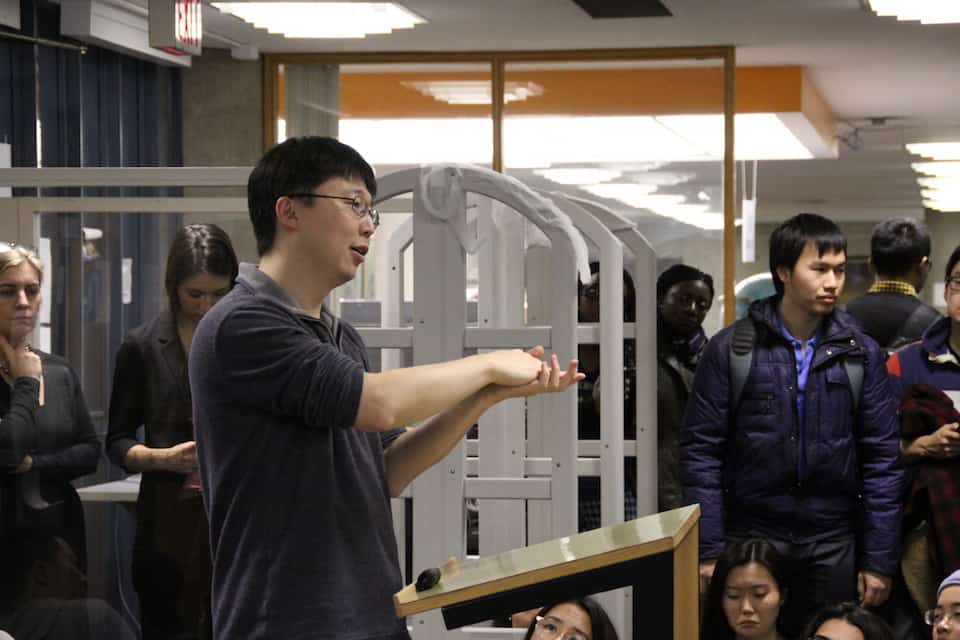Last month, Dr. Feng Zhang of the Broad Institute and the McGovern Institute for Brain Research at the Massachusetts Institute of Technology (MIT) spoke to a group of students at the D.G. Ivey Library at New College. The event, organized by the Neuroscience Association for Undergraduate Students (NAUS) and Dr. Bill Ju of the Human Biology Department, drew a large crowd of aspiring neuroscientists and curious students alike.
The talk, titled “The Inspirations behind CRISPR,” focused on Zhang’s journey from student to groundbreaking researcher.
Zhang is best known for his instrumental role in the development of CRISPR-Cas9, or the Clustered Regularly Interspaced Short Palindromic Repeats-associated protein-9 nuclease.
For the unaware, the CRISPR-Cas9 is a molecular genetics technology that gives researchers the ability to cut entire sequences from the DNA of any organism with far greater precision and accuracy than was possible using previous technologies. The importance of CRISPR-Cas9 is best elucidated by the purpose of Zhang’s visit — to speak about his scientific work at the Gairdner Lectures, which took place at the end of October here in Toronto.
The event was centered on a Q & A session, with questions coming from both student moderators as well as those in the audience.
Speaking on his inspiration for research, Zhang drew a connection between his longstanding interest in math and computer science to an understanding of biology as “life as a programmable thing.”
Zhang, who has worked as a professor at MIT for five years, was asked about how he mentors his students. He described how he tailors his approach to the aptitudes of those studying under him — based around whether they like to tinker and build, or what their specific interests are in applying the lab’s technologies to particular diseases.
Another question addressed to Zhang was on the topic of maximizing one’s time as an undergraduate. Zhang stated that he believed a fundamental part to a successful undergraduate career was well-guided mentorship. He described witnessing his own mentor’s “passion for science” as a highlight of his undergraduate career. He went on to discuss the need for undergraduates to develop their passions and determine what they find “interesting and meaningful.”
Zhang advised against following the career trajectories of successful role models, and instead advocated for entering a field of study that one finds exciting.
His own work in neuroscience began with optogenetics — a technology that can control the function of genes via light — that inspired him to study the brain after helping a friend overcome depression. He felt that if given the chance to work directly with neurons, he might be able to better understand the processes behind mental health issues like depression, and understand his own thought processes more clearly.
Realizing his interest in studying psychiatric disease from a biological perspective, he began his PhD under the tutelage of Dr. Karl Deisseroth, a trained psychiatrist working in laboratory research at Stanford.
Zhang has left his mark on the fields of molecular genetics, neuroscience and molecular biology, and after his discussion with the U of T students who attended his talk, he likely left an impression on many future scientists as well.


